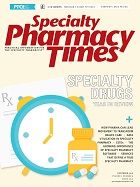
Publication
Article
Specialty Pharmacy Times
Recent Prosecutions on Product Discounts Show Legal Risk Hidden Beneath the Surface
Author(s):
Recent prosecutions have heightened the risk for both market share discounts and discounts in lieu of service fees.
Product discounts are a cornerstone of distribution chain contracting and have traditionally been considered a low risk.
However, some recent prosecutions have heightened the risk for both market share discounts and discounts in lieu of service fees. These prosecutions have targeted discounts associated with both promoting appropriate use and requiring any additional promotional activities.
Specialty pharmacy market participants are still acclimating to this. In response, distribution chain participants should employ contract strategies that both meet business goals and lower the risk profile of a proposed arrangement. Also, contract negotiation is only a part of risk mitigation.
Regulators often scour e-mails, marketing materials, and financial documents to find evidence to support a case. It is, therefore, important to educate across the company regarding the risk factors associated with properly structuring and discussing discount arrangements.
Safe harbor or dangerous waters?
The federal Anti-Kickback Statute (AKS) prohibits providing any compensation if a purpose of the compensation is to induce the purchase of products or services reimbursed by federal health care programs, unless a regulatory “safe harbor” is met. The AKS includes a safe harbor specifically protecting discounts—both reductions of the purchase price at the time of sale and retroactive discounts (rebates), which are provided after the product is purchased.
For this reason, manufacturers, wholesalers, specialty pharmacies, and other actors in the distribution chain almost universally attempt to structure discounts within the discount safe harbor. However, the government has been taking the position that market share discounts, and certain discounts conditioned on the performances of services, fall outside of the safe harbor and violate the AKS.
Based on the cases targeting discount agreements, the following scenarios pose heightened risks of a kickback claim and should be reviewed by legal:
- Discounts that require services, particularly if they involve marketing, conversion, or referral activities.
- Discounts that require specialty pharmacy promotional activities, including adherence activities. This includes arrangements where there is no fee paid for the promotional/adherence services and discounts are provided, but not directly linked to the services.
- Service requirements that are not included in the written contract.
- Discounts that are linked to performance metrics or other outcomes.
An example of the perceived erosion of the AKS discount safe harbor occurred in the recent case of US ex rel. Herman v. Coloplast Corp, a whistle-blower case in which the government declined to join the prosecution. Among other things, the plaintiffs alleged that providers were required to perform certain soft- and hard-selling tactics in order to earn product discounts on DME.
The judge dismissed the case, finding that the discounts were protected by the safe harbor. The relator asked the judge to reconsider her ruling, and in support of the reconsideration, the Department of Justice (DOJ) made the rare move of filing a Statement of Interest. The government initially declined to intervene in the case, which made its filing of a Statement of Interest all the more surprising.
In its statement, the DOJ argued that payment from a manufacturer in return for specific conversion and referral activities—even in the form of a reduction in price— is not considered a discount within the safe harbor. Rather, the DOJ asserted that these payments are illegal remuneration for conduct or services intended to convert patients to the manufacturer’s products.
The DOJ also wrote that nothing in the AKS suggests that one can hide a personal services contract within a discount, particularly a discount based on volume or market share. Tying performance to the provision of additional discounts has also recently been criticized in the prosecutions associated with the Novartis, Accredo, and BioScript settlements relating to the Exjade and Myfortic programs. Included in the many allegations in that case were assertions that Novartis offered performance rebates to specialty pharmacies depending on the quantity of the Novartis drug dispensed or the increased market share obtained for the Novartis product.
The complaint also alleged that pharmacies could earn discounts for recommending that doctors switch patients to Myfortic from competing drugs. Regulators focused on the fact that the discounts were not based only on whether the pharmacy purchased the product. Additionally, the government contended that Novartis induced specialty pharmacy referrals by giving deeper rebates to pharmacies that obtained higher refill rates. The amended complaint referenced a Novartis PowerPoint that encouraged sales reps to “offer discounts to drive refills.”
The case resulted in more than $430 million in combined settlement payments among the defendants. Johnson & Johnson [J&J} paid $2.2 billion and Omnicare paid $124.4 million to settle claims that, among other things, J&J paid Omnicare for data as a substitute for discounts and that discounts on Risperdal were based on Omnicare’s market share of the drug.
Regulators relied on a J&J document that stated its rebates to Omnicare were “incentives to Omnicare to advocate appropriate use of J&J products” and J&J’s calculation of the return-on-investment (ROI) on the discounts that provided “for a $3MM investment in rebates with Omnicare, [J&J] gains $9MM in sales, less costs and investments, returns $4.8MM to OMP.”
Charting a Safe Course
Manufacturers, wholesalers, and pharmacies will benefit from increasing scrutiny of their discount arrangements, and providing training to those involved in contracting on the issues targeted by regulators. Most importantly, business teams often consider arrangements globally, in terms of product, services, and money, without segregating discounts and service fees.
Although this approach may make business sense, regulators read the AKS as putting discounts and service fees in 2 different categories. A true discount cannot be a service fee, and vice versa. Business teams may also not recognize the risk associated with a discount that rewards performance, such as market share rebates.
When vetting discount and service arrangements, following the tenets below may reduce the risk:
- Avoid discounts for services, especially related to converting or switching patients or generating referrals.
- Use separate agreements for services and discounts to clarify that the 2 concepts are not tied.
- Ensure there are no “off-the-books” services and that all aspects of the arrangement are memorialized in the written agreement.
- Monitor activities and conduct during quarterly business reviews or other similar meetings to prevent improper off-the-books arrangements, services, or contingencies on discounts.
- Include clear contract language identifying discounts as “discounts” within the meaning of the AKS discount safe harbor.
- Require invoices and/or periodic statements for services to evidence fees tied to services as opposed to them being a form of discount.
Due to the shifting landscape of the AKS safe harbor, all services involving promotional and adherence activities must be carefully reviewed. The legal department blessing a contract will not always be enough to insulate an arrangement from risk.
As the settlements discussed in this article show, regulators dig through communications and documents, often relying on a party’s own words to evidence intent to induce a kickback. Regulators have flagged calculations of ROI on discounts and emails associating discounts with maximizing appropriate use of a drug as evidence of illegal inducement.
All parties involved in constructing discount arrangements should be educated about the government’s narrowing view of the safety provided by the AKS discount safe harbor and remain vigilant when designing, documenting, and operationalizing those arrangements. 
MICHAEL R. HESS is a member of Bass, Berry & Sims PLC and leads its specialty pharmacy, pharma services and distribution practice, and is based in the firm’s Memphis, Tennessee, office. He is the former chief counsel and vice president of strategic development at Accredo Health Group and assistant general counsel for Accredo’s parent, Medco Health Solutions.SHANNON L. WILEY is an associate of Bass, Berry & Sims PLC in its specialty pharmacy, pharma services and distribution practice, and is based in the firm’s Memphis, Tennessee, office. Bass, Berry & Sims PLC has more than 220 attorneys representing numerous publicly traded companies and Fortune 500 businesses. The firm has three offices in Tennessee (Nashville, Memphis, Knoxville) and one in Washington, D.C.BRIAN V. PERO is vice president and general counsel of Cardinal Health’s Specialty Pharmaceutical Solutions division, which includes Cardinal Health’s pharmaceutical distribution, GPOs, 3PL, specialty pharmacies, health analytics, marketing services, patient access services, regulatory consulting, and other businesses focused on the specialty pharmaceutical supply chain.

Newsletter
Stay informed on drug updates, treatment guidelines, and pharmacy practice trends—subscribe to Pharmacy Times for weekly clinical insights.
2 Commerce Drive
Cranbury, NJ 08512
All rights reserved.





